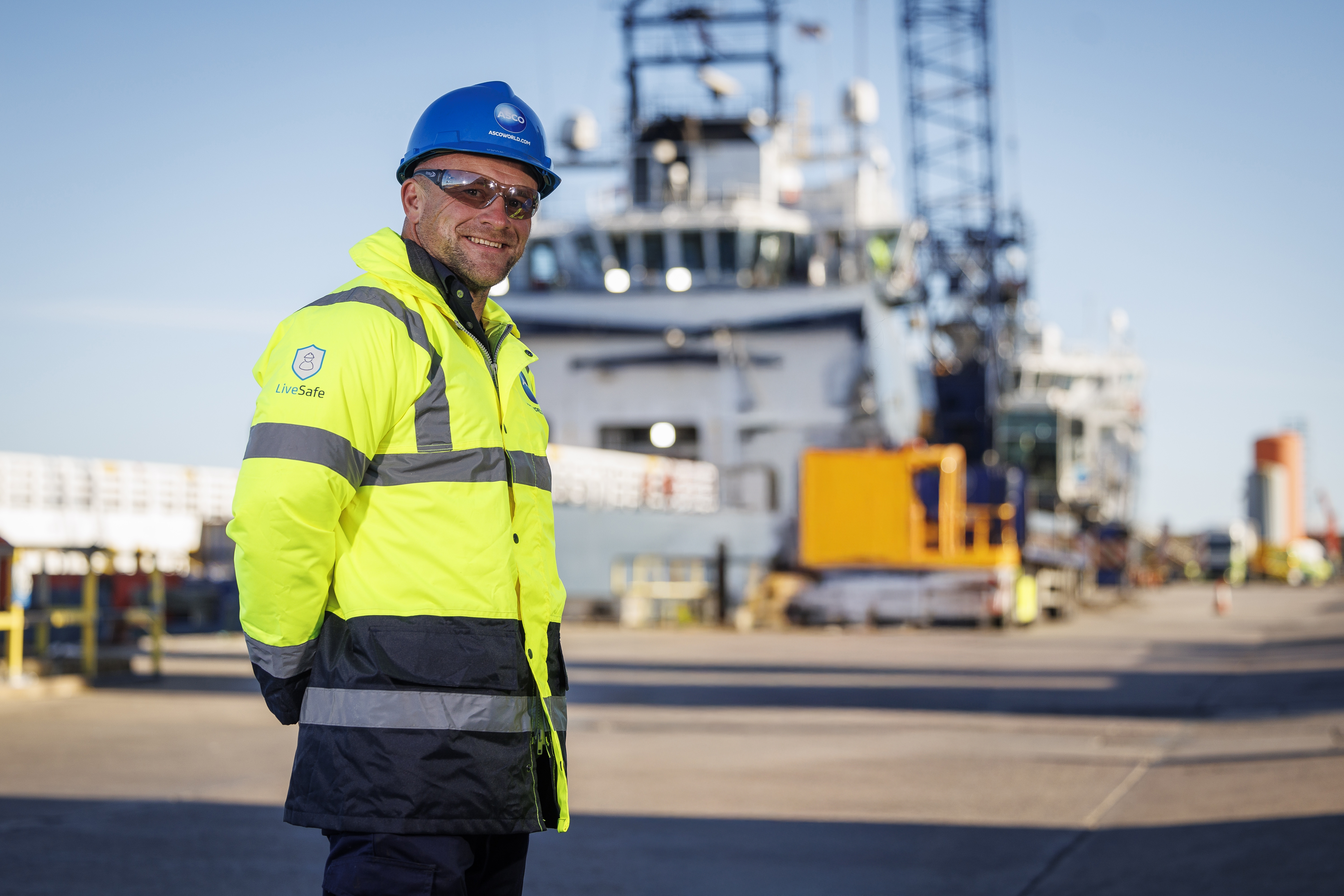
ASCO has come a long way since its founding in 1967. Now it is a driving force in logistics and materials management for the global energy sector.
The company is headquartered in Aberdeen and has operations spanning more than 60 locations worldwide. But just as the energy industry has changed dramatically over the years, so has ASCO. Now, it is building on its strong foundations to accelerate progress toward a resilient, low-carbon energy system.
Accordingly, ASCO has set ambitious targets as it continues to diversify its portfolio.
Thuy-Tien Le Guen Dang, Head of New Energy and Net Zero, explained: “We’ve established a clear goal to diversify our business across both sectors and geographies. By 2029, we aim for 20% of our revenue to come from New Energy sources - including CCUS, wind, and clean fuels - while also targeting 40% overall growth. We also recognise that globally, many regions are at differing stages of their energy journey. Our near 60 years of experience supporting the North Sea Oil and Gas industry gives us a unique insight into long-term strategies to optimise opportunities, while also managing environmental responsibilities and the realities of shifting political landscapes.” The company’s strength lies in its end-to-end expertise: from strategy and planning to execution.
As Thuy-Tien said: “We’re logistics experts, uniquely positioned to help clients build and optimise their supply chains. What sets us apart is that we don’t just advise - we implement and execute our solutions, utilising our hands-on experience to ensure the optimal outcome for our clients.”
ASCO’s diversification is already well underway. 25% of their business in Norway now supports non-oil and gas clients, driven by a strong freight management operation that serves a range of sectors and key customers, including aluminium producer Alcoa. The company is also active in Australia and the UK, supporting offshore wind and carbon capture and storage (CCS) projects, including work with Inpex and Santos.
CCS represents a clear growth opportunity - it aligns closely with their existing upstream and midstream oil and gas capabilities, making it a natural next step. The ‘utilisation’ aspect of CCUS is particularly exciting, as it allows them to leverage their strengths in intermodal logistics.
Large, complex infrastructure construction projects will also require seamless logistics coordination.

ASCO currently supports around a dozen projects for offshore wind in the UK, but Thuy-Tien sees a clear opportunity to offer more.
She said: “We have the ability to offer turnkey logistics solutions by coordinating entire supply chains and providing integrated onshore logistics and marine services, supporting the marshalling and integration phase via one single point of contact."
In fact, ASCO is already helping prepare the industry for a future surge in offshore wind development. In collaboration with Scottish Enterprise and Royal HaskoningDHV, it is conducting a logistics simulation modelled on four large wind projects - three ScotWind and one INTOG - happening concurrently. It takes into account critical factors, such as timeframes, increasing turbine sizes, uncertainty in technology and limited port infrastructure and availability. The goal? To proactively identify infrastructure constraints and validate port strategies before bottlenecks arise.
ASCO is also supporting future clean fuels. Through collaboration with several hydrogen developers across the UK and Norway they are working on bunkering and distribution solutions.
ASCO is a member of the TH2ISTLE consortium, a collaborative initiative focused on establishing an interconnected network of projects to produce, transport, and utilise hydrogen in the North East of Scotland. The consortium submitted a bid for a European grant to develop a hydrogen valley, where ASCO will create digital tools to support hydrogen distribution while also working to decarbonise its own fleet as part of the effort.
With its blend of legacy expertise and forward-looking innovation, ASCO is building a more resilient, flexible, and sustainable logistics model - one that will carry the energy sector into the future.
Learn more about ASCO's capabilities in the wind sector here.

